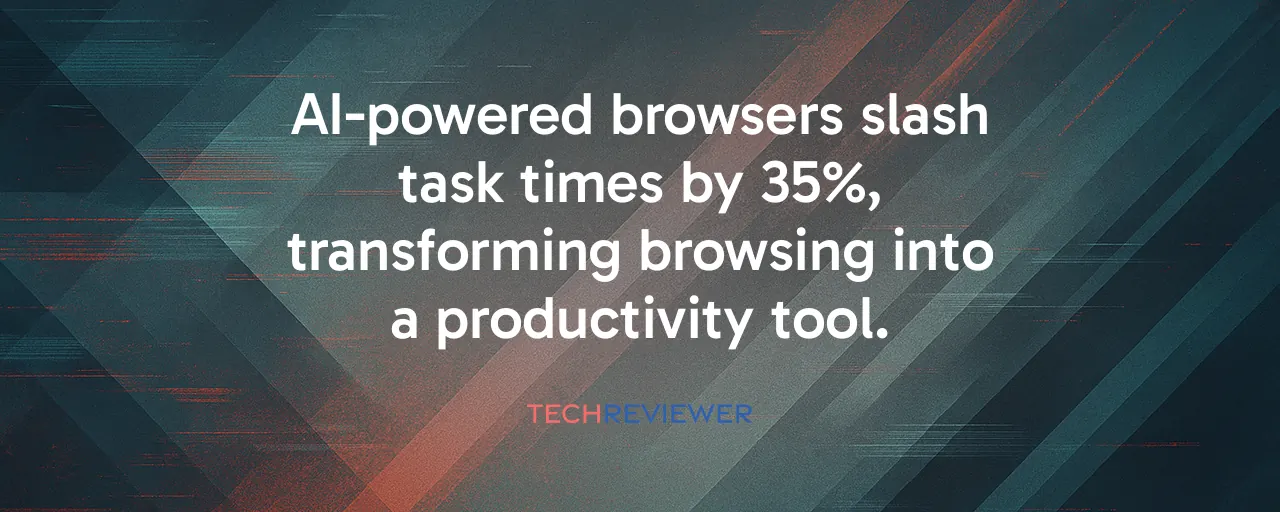A New Way to Navigate the Web
Browsers are evolving to actively help users get things done. Anthropic's Claude for Chrome, a new AI-powered extension, does exactly that. It sits in a side panel, watching your active tab and, with your permission, clicking links, filling forms, or pulling data. Early users have already cut task times by up to 35%, from summarizing legal documents to compiling price comparisons across shopping sites. This development offers a glimpse into how AI agents are starting to blend into our daily browsing.
The idea came out of nowhere for many, but it's part of a broader race. Companies like Perplexity, with its Comet browser, and Google, weaving Gemini into Chrome, are all betting on AI to make browsing smarter. OpenAI might even join the fray with its own browser soon. These tools aim to save time and effort, turning the browser into a personal assistant that anticipates your needs. But as these agents gain traction, they're also stirring up questions about how we interact with the web.
Real-World Wins and Trade-Offs
A consulting firm tested Claude for Chrome, revealing the agents' capabilities. Analysts slashed their time gathering competitive intelligence by 42%, pulling insights from scattered web sources in minutes. The agent scanned pages, extracted key data, and built reports, letting consultants focus on strategy. But there was a catch: the tool accidentally captured sensitive client data in its prompts, raising red flags for compliance teams. This shows the power and peril of letting AI loose in your browser.
Separately, a nonprofit working with people with motor impairments found a different kind of success. Their users completed online government forms 55% faster with Claude handling clicks and inputs. For those who struggle with precise mouse movements, this kind of automation opens doors to digital independence. Concerns linger, even for these users. Developers worry that sites with complex, dynamic code might trip up these agents, leaving gaps in functionality on script-heavy pages.
The Privacy and Security Tightrope
Letting an AI agent roam your browser sounds convenient, but it comes with risks. Anthropic has tackled one major threat, prompt-injection attacks, where malicious code on a website could trick an agent into harmful actions. Their defenses cut the success rate of these attacks from 23.6% to 11.2%, a solid step but not foolproof. Security researchers point out that as agents gain more control, the stakes get higher. A single zero-day exploit in Chrome's extension APIs could expose sensitive data.
Privacy is another sticking point. Constantly scanning your active tab means sending page data to cloud servers, which worries enterprise IT teams bound by strict rules like GDPR or HIPAA. Regulators are watching, too, wondering if these agents skirt website terms of service or cross-border data laws. Users face a trade-off: hand over more data for convenience or keep things locked down and miss out. Anthropic's answer is a permission system that asks for your approval before every action, but clicking 'allow' over and over can wear thin.
What This Means for the Web's Future
AI agents like Claude for Chrome are pushing browsers beyond their old role as static windows to the internet. They're becoming platforms where work happens, from drafting GitHub reviews to translating foreign sites on the fly. Market analysts predict browser-based AI tools could pull in $27 billion by 2027, driven by professionals who want to work smarter. The shift involves more than just productivity. It's about redefining who can access the web fully, from knowledge workers to those with disabilities.
The path ahead is not smooth. Web developers need to rethink site design to play nice with these agents, while companies like Google and Microsoft loom large with their own tools. If Google's Chrome faces an antitrust breakup, as some expect, the race for browser dominance could heat up, with Anthropic and OpenAI vying for a slice. The bigger question is balance: how do we harness AI's potential to make the web faster and more inclusive without tripping over privacy pitfalls or widening digital divides?
